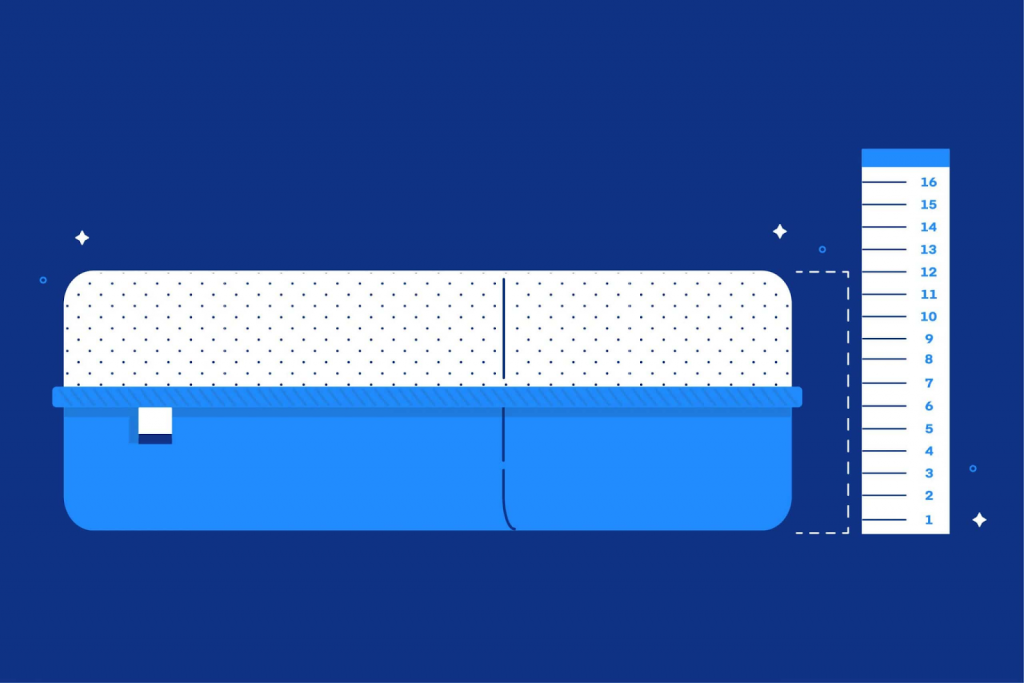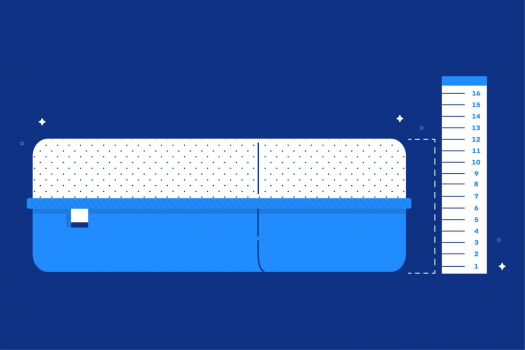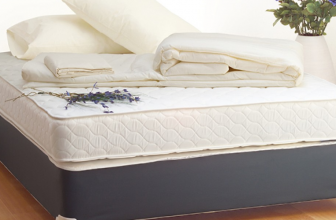Brief: How Thick Should A Mattress Be
- Average Thickness: Typical mattress thickness ranges from 8-10 inches, with various options available.
- Mattress Thickness Importance: Includes the base and comfort layer. The comfort layer is often the focus, consisting of materials like foam and latex.
- Factors Affecting Thickness:
- Comfort Layer: Determines the feel, crucial for sleep position and medical conditions. Side sleepers and those with pain often benefit from thicker comfort layers.
- Base Layer: Provides foundational support, ideally at least 5 inches thick.
- Price: Thicker mattresses tend to be more expensive.
- Considerations for Thickness:
- Sleeping Position: Back, stomach, and side sleepers have different thickness needs.
- Body Type: Heavier individuals may require thicker mattresses for adequate support.
- Sleeping Partner: Shared beds might need thicker mattresses for combined weight.
- Medical Conditions: Certain conditions may necessitate specific thicknesses.
- Benefits of Thick Mattresses: Include improved sleep quality, comfort for back pain, durability, and ease of movement.
- FAQs:
- Optimal Thickness Range: 8-12 inches.
- Thickness and Firmness: Thicker mattresses are usually firmer.
- Exceptions to Standard Thickness: Varies based on personal preference and body type.
- Thicker Mattress Benefits: More support and comfort, especially for larger body types.
- Drawbacks of Thicker Mattresses: Higher cost, may not fit some bed frames.
- Recommended Thickness by Sleep Position: Back sleepers (10-12 inches), side sleepers (10-14 inches), stomach sleepers (8-10 inches).
When it comes to mattresses, many people are confused on what to buy. There is a wide range of beds available and finding the best-designed one can be quite difficult. One of the main questions: how thick should be a mattress? The average thickness is usually around 8-10 inches. But there’re many different options to choose on the market today.
This article will address some of the most common questions individuals want answering on which mattress should they purchase and how thick it should be.

What Is Mattress Thickness?
When people ask how big their mattress should be, or why they need to consider the thickness when buying a new one, this is typically what they’re referring to the thickness of the whole mattress including the base and comfort layer.

But sometimes, the thickness of a mattress is usually measured on the comfort layer. The comfort layer is the portion of the part that’s closest to the body when sleeping. It typically consists of soft foam covered with a smooth material like cotton or natural latex.
Factors Determining Mattress Thickness
There are many factors that can affect how thick your mattress should be.
Comfort Layer
The first important thing to consider when choosing a mattress is its comfort layer. This should be chosen based on personal preference and your own sleep position as well as medical conditions (especially if you suffer from back pain, etc.).
Soft memory foam mattresses typically have a thickness of approximately 4 inches. These have been known to provide the most comfort for users who sleep on their sides. They can also be quite beneficial for individuals who have neck and back pain.
Base Layer
The base layer is the foundation upon which your mattress is built. It supports the weight of both you and your partner when you sleep on it, hence it’s important that it’s thick enough to provide adequate support (it should be at least 5 inches thick).
Price
It’s important to remember that the thicker your mattress, the more it costs. This doesn’t necessarily mean that you need to buy thick bedding if you have a limited budget; what’s important is finding one with the right thickness based on your needs and preferences.
What To Consider When Deciding On Mattress Thickness
Now that we know what mattress thickness is let’s look at some of the conditions surrounding it.
Sleeping Position
If you sleep on your back or stomach, a thick layer is necessary – the same goes for side sleepers who don’t suffer from neck pain or any other condition that requires extra support in these areas.
Body Type
The thicker the mattress, the more weight it can support. The less weight each person carries in bed, the thinner the mattress they should use (this is because heavier people generally need more support when sleeping).
Sleeping Partner
If you’re going to sleep with a partner, you should consider the mattress thickness because your weight will be doubled. A thin mattress may not give good support to those with weak joints or those who suffer from back pain, etc.
Medical Conditions
Those who suffer from certain medical conditions (especially back pain, neck pain, etc.) need to know that thicker layers are more likely to cause discomfort when sleeping. If you have any spinal injury or experience severe back pain or chronic pain, you should keep the thickness to a minimum. You can always add an extra layer if needed with the help of the foam pad or pillow top.
Benefits Of Thick Mattress
There are many benefits that come with a thicker mattress. They are:
- You can sleep longer.
- It’s better for those with back pain.
- More comfortable to sleep on.
- It is more durable and can last longer.
- It’s easier to move around.
FAQ
What is the optimal mattress thickness for a mattress?
Generally, the optimal thickness for a mattress is between 8-12 inches.
Is a thicker mattress usually firmer?
Yes, thicker mattresses are usually firmer.
Are there exceptions to the 8-12 inch rule?
Yes, there are exceptions. Depending on personal preference and body type, some people might prefer thicker or thinner mattresses than the 8-12 inch rule.
Are there benefits to using a thicker mattress?
Yes, thicker mattresses can help provide more support and comfort, which can be especially helpful for people who have a larger body type.
Are there any drawbacks to using a thicker mattress?
Yes, thicker mattresses can be more expensive and may not fit in certain beds or frames.
What are the best thicknesses for back sleepers?
For back sleepers, a mattress that is 10-12 inches thick is usually recommended.
What are the best thicknesses for side sleepers?
For side sleepers, a mattress that is 10-14 inches thick is usually recommended.
What are the best thicknesses for stomach sleepers?
For stomach sleepers, a mattress that is 8-10 inches thick is usually recommended.
Are memory foam mattresses usually thicker?
Yes, memory foam mattresses are typically thicker than other types of mattresses.
Are innerspring mattresses usually thinner?
Yes, innerspring mattresses are typically thinner than other types of mattresses.
Are adjustable air mattresses usually thicker?
Yes, adjustable air mattresses are typically thicker than other types of mattresses.
Are latex mattresses usually thinner?
No, latex mattresses are typically thicker than other types of mattresses.
How can I make a thicker mattress firmer?
To make a thicker mattress firmer, it is recommended to use a mattress topper or mattress pad to add extra support and cushioning.
Is it possible to make a thinner mattress firmer?
Yes, it is possible to make a thinner mattress firmer by using a mattress topper or mattress pad.
Are there any risks associated with using a too-thin or too-thick mattress?
Yes, using a mattress that is either too thin or too thick can lead to uncomfortable sleeping positions and an increased risk of chronic back pain.
You may want to revisit some parts of the article








